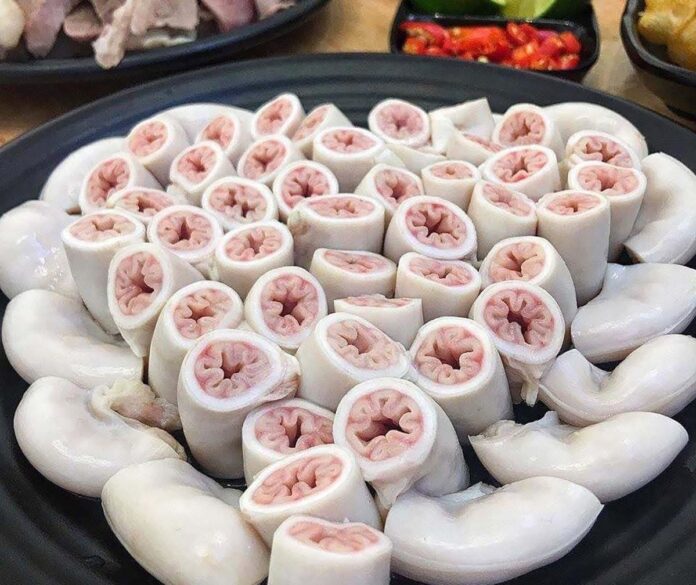For food enthusiasts in Vietnam, especially those who relish offal dishes, the recent revelation about the beloved ‘se dieu’ (twisted intestine) delicacy has come as a shock. It turns out that the rare and expensive dish they thought they were indulging in was mostly a fake, created with chemicals and additives.
The twisted intestine, a type of pork intestine, was believed to be a delicacy due to its rarity. It was said to come from older female pigs and was considered a premium dish, with some restaurants charging exorbitant prices for a single dish. However, the truth is that the supply of this “rare” dish far outweighed the probability of its existence, and consumers are now left feeling betrayed.
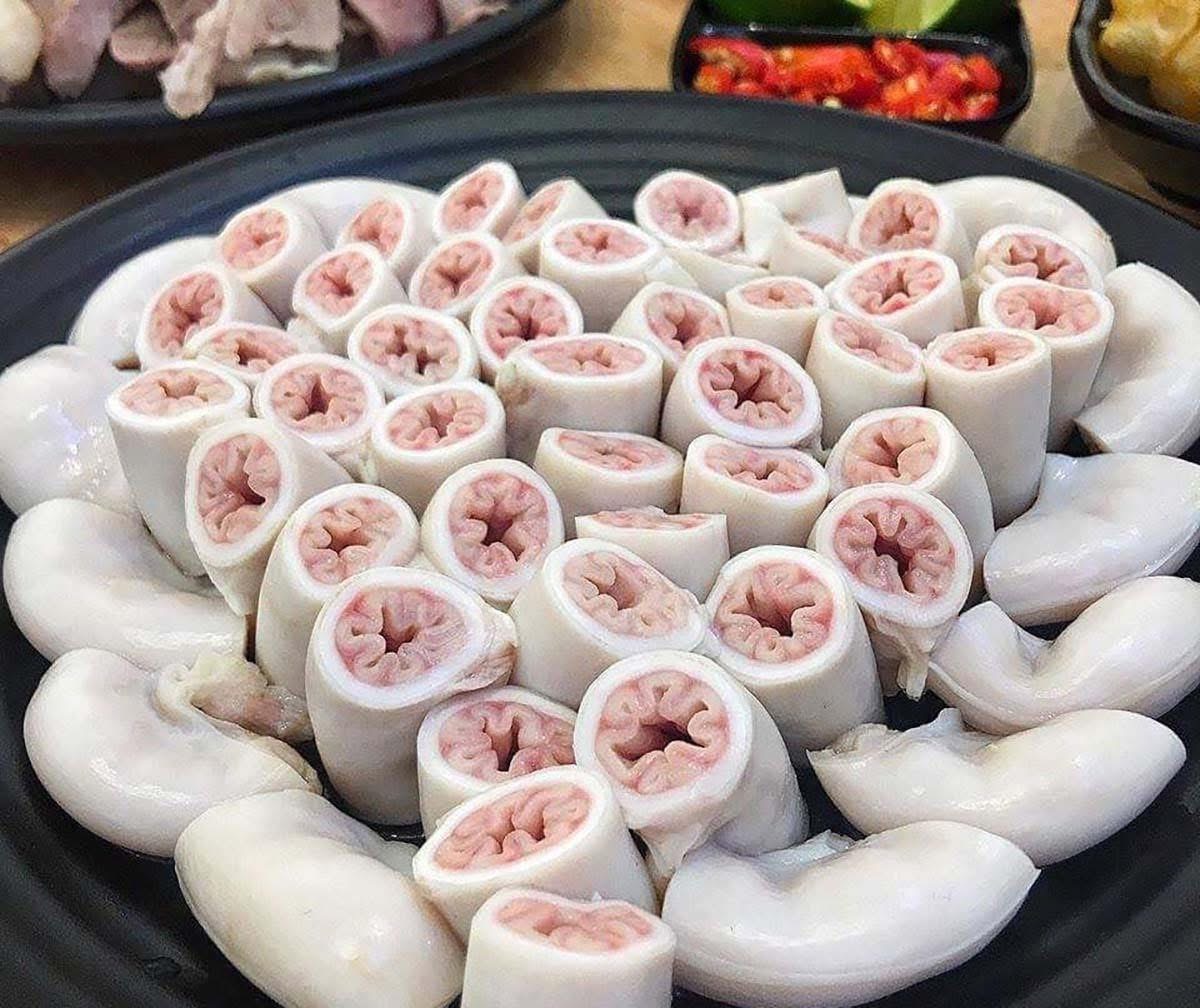
Twisted Intestine: A Delicacy or a Scam?
Vietnamese cuisine is known for its ingenuity in utilizing all parts of an animal, and offal dishes are particularly popular. From blood pudding to various types of organ meats, Vietnamese diners embrace these dishes as a testament to their cultural heritage, frugality, and culinary creativity. However, the twisted intestine has taken this appreciation for offal to a new level, with diners willing to pay a premium for what they believed to be a rare treat.
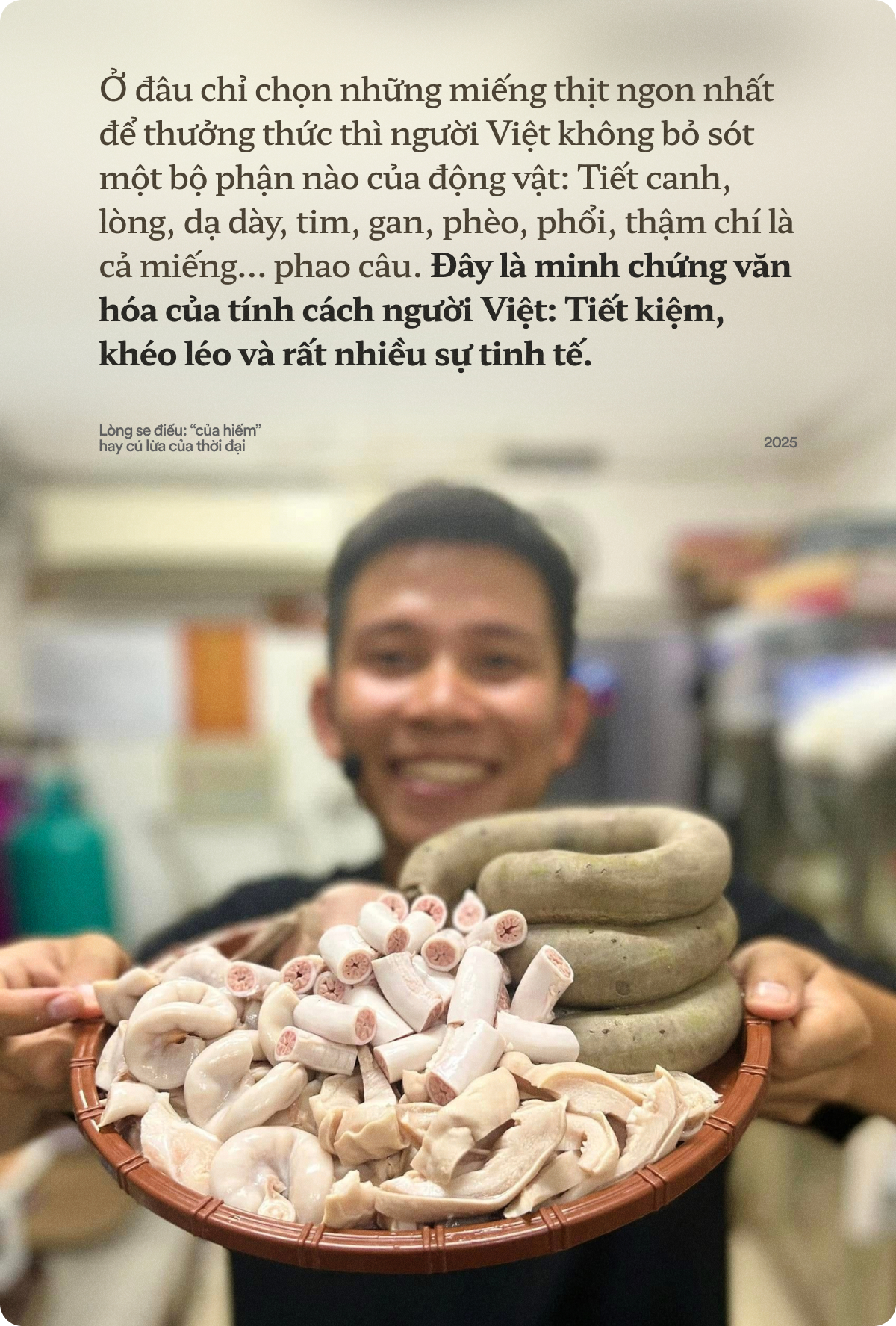
According to folklore, twisted intestines were believed to come from older female pigs that had lived long lives. As a result, each pig would only yield a small amount of this delicacy. Another theory suggested that twisted intestines came from pigs with health issues or genetic abnormalities. Given the low probability of finding twisted intestines in pigs, it was indeed a rare treat. However, as demand increased, twisted intestines became surprisingly common, readily available at restaurants and street food stalls.
Diners were thrilled to indulge in this supposedly rare dish without having to wait or search for it. The abundance of twisted intestines in the market seemed illogical, but consumers turned a blind eye, grateful for the opportunity to savor this delicacy.
The twisted intestine scam persisted for years due to a collective suspension of disbelief. Both consumers and vendors perpetuated the myth, with sellers asserting the authenticity of their twisted intestines and buyers readily accepting these claims without question or skepticism. It was a mutually beneficial arrangement, with consumers satisfying their cravings and vendors profiting from the perceived rarity of the dish.
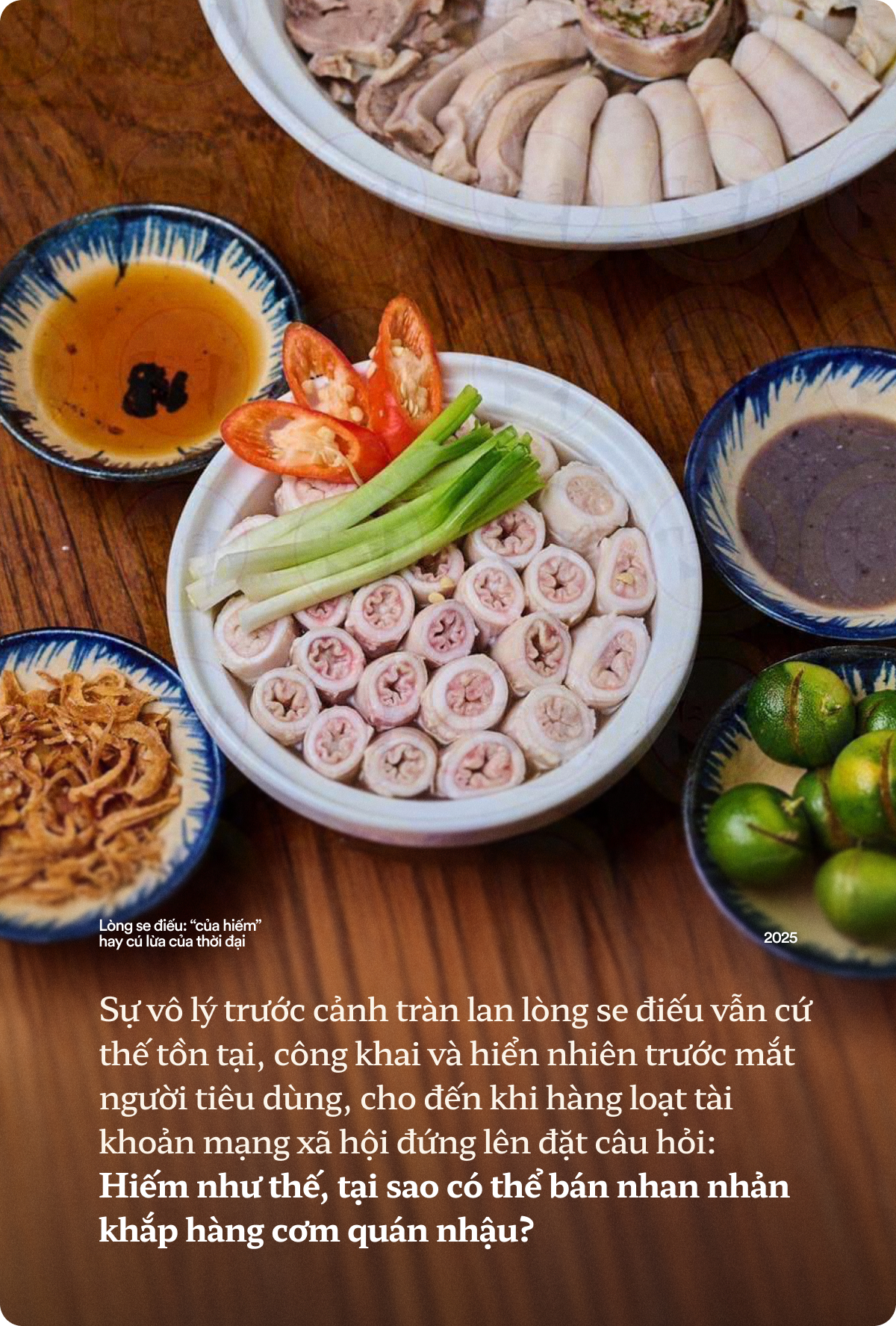
Unraveling the Scam: A Lesson in Consumer Culture
The twisted intestine scam thrived due to a combination of factors, including cultural beliefs, consumer behavior, and a sophisticated culinary deception. While consumers were initially drawn to the dish by its perceived rarity and culinary prestige, their continued patronage was fueled by a willingness to ignore their suspicions and potential health risks.
Many diners had doubts about the authenticity and safety of twisted intestines, especially when they were sold at suspiciously low prices by street vendors. They sensed that the texture and taste of the dish were not quite right, indicating possible chemical treatment. However, driven by their love for the dish and a sense of culinary adventure, they chose to ignore these red flags, adopting a carefree attitude toward food safety.
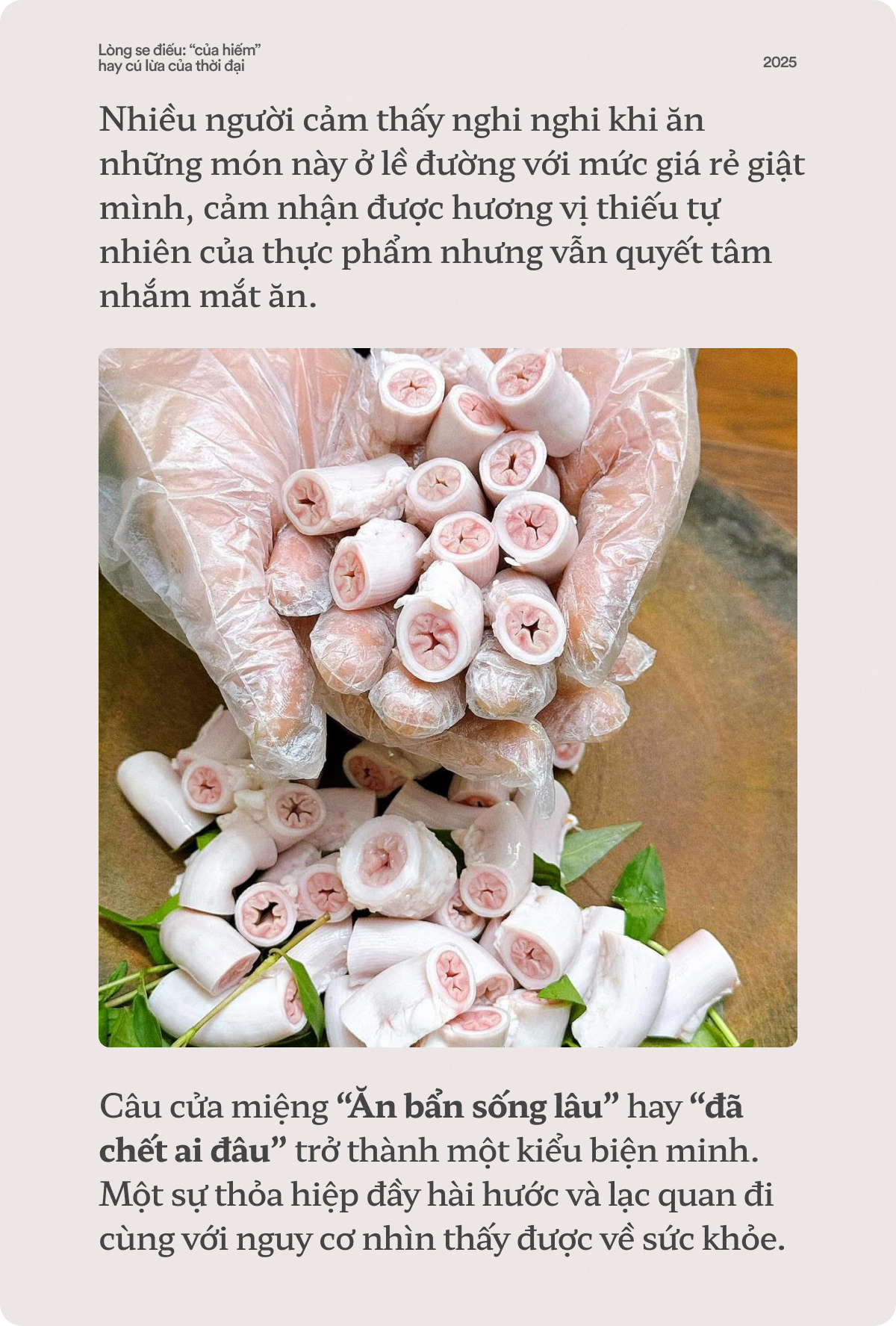
When the truth finally came to light, consumers were shocked but not surprised. They had long harbored suspicions, but their love for the dish and their trust in the collective culinary wisdom had kept them from asking tough questions. This incident highlights a larger issue of consumer culture, where convenience, taste, and perceived rarity can outweigh concerns about food safety.
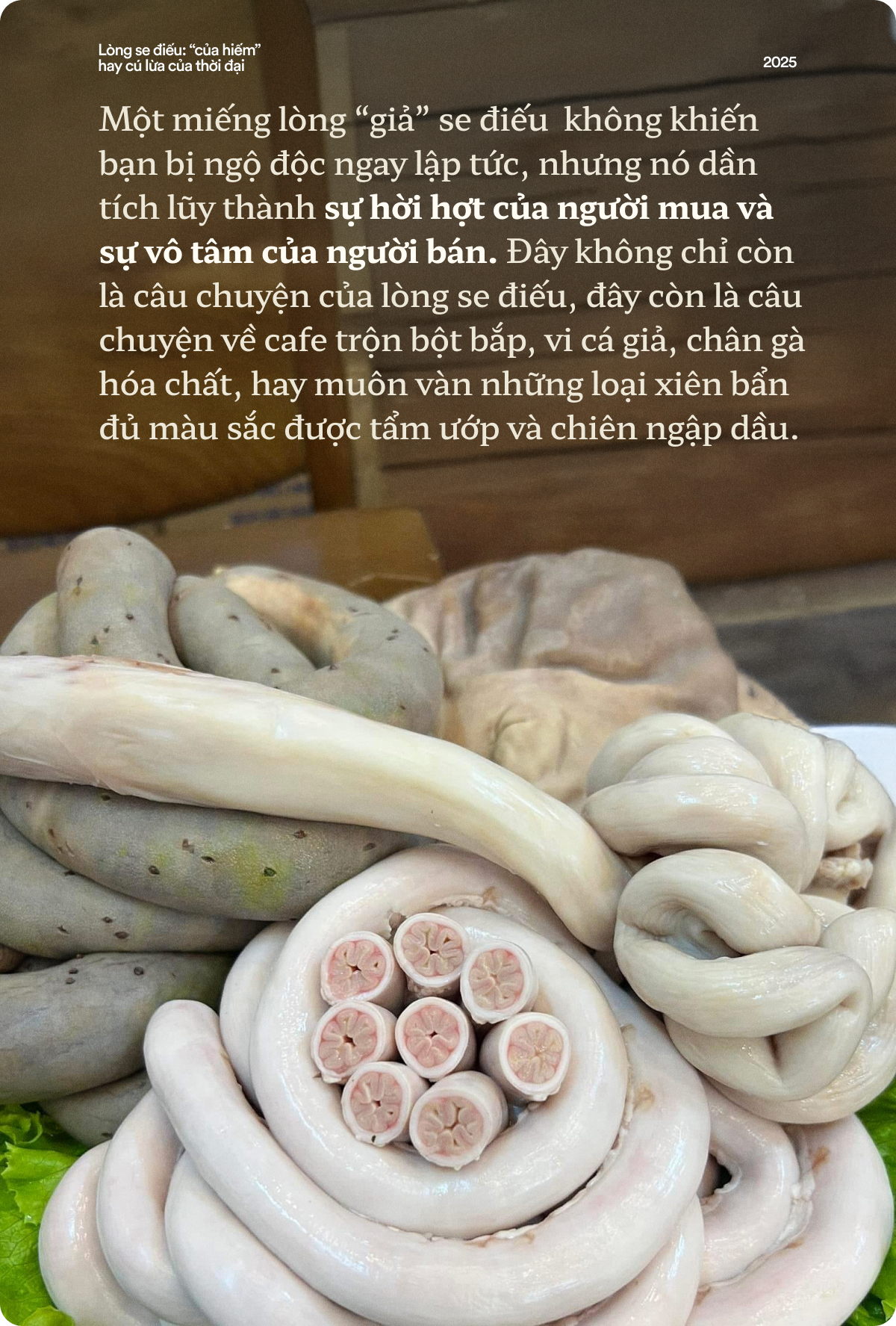
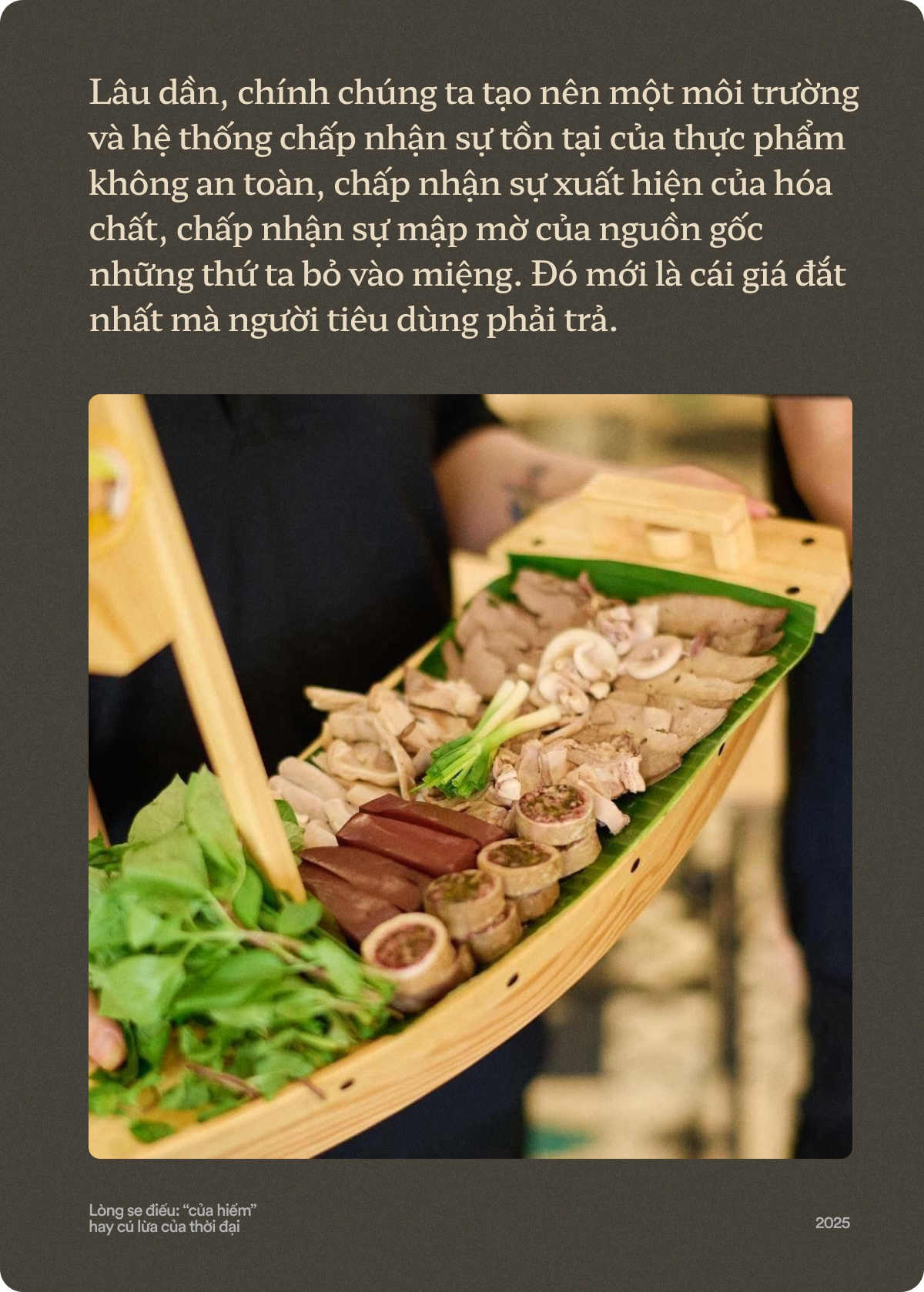
The twisted intestine scam is not an isolated incident. Similar concerns have been raised about the widespread use of chemicals and additives in other popular dishes, such as coffee mixed with corn starch, fake fish maw soup, and chemically treated chicken feet. Consumers often turn a blind eye to these issues, prioritizing taste, convenience, and affordability over health and safety. This complacent attitude has created an environment that tolerates and even encourages the use of unsafe food practices and ingredients.
Consumer Complicity and the Path Forward
While the twisted intestine scam has not caused any immediate health crises, it has revealed a troubling aspect of consumer culture. Diners were willing participants in this deception, choosing to ignore their suspicions and embrace the myth of the rare delicacy. This incident serves as a stark reminder that consumers play a critical role in holding the food industry accountable for its practices.
In the aftermath of the scandal, regulatory agencies will likely increase their scrutiny of offal dishes and crack down on restaurants and slaughterhouses with questionable practices. Consumers, too, will be more cautious and discerning about the offal dishes they indulge in. However, it’s important to recognize that consumers were not entirely blameless in this deception.
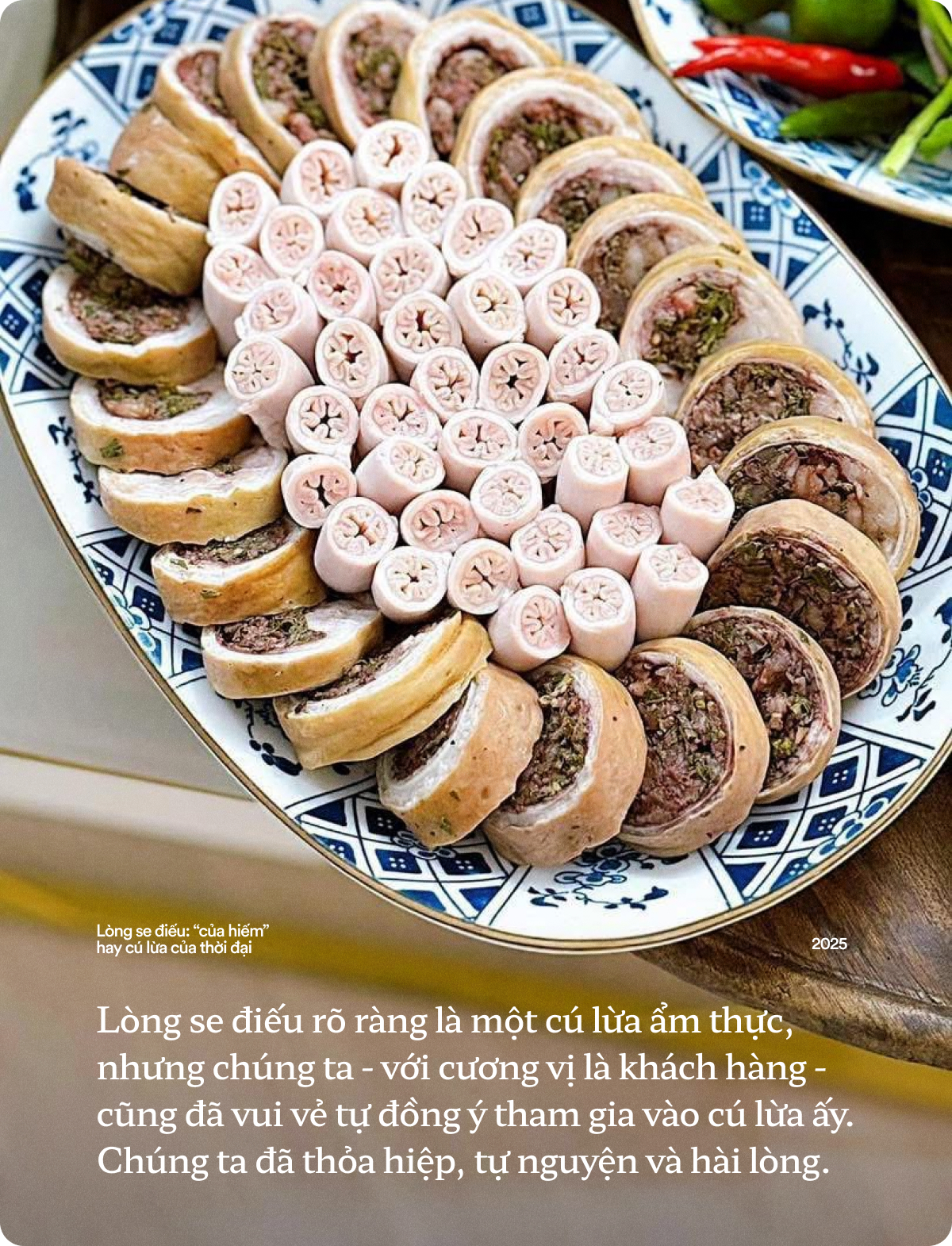
There are still honest vendors out there who serve authentic twisted intestines, carefully prepared and deliciously seasoned. While their numbers may be dwindling, and prices may soar, it’s a small price to pay for peace of mind and culinary authenticity. This incident has sparked a much-needed conversation about offal dishes, from social media discussions to investigations by food safety authorities.
Many diners, myself included, now have a better understanding of what twisted intestines truly are, where they come from, and the likelihood of finding them in a typical pig. We are more cautious and discerning about the dishes we order, and we are more aware of the potential for deception in dishes touted as “rare, expensive, and exquisite.”
As for me, the next time I encounter twisted intestines on a menu, I’ll likely order them. I’ll savor the dish, knowing that sometimes, the pleasure of eating goes beyond the food itself—it’s about the experience. But I’ll also be more mindful, knowing that culinary delights can sometimes come with a side of deception.
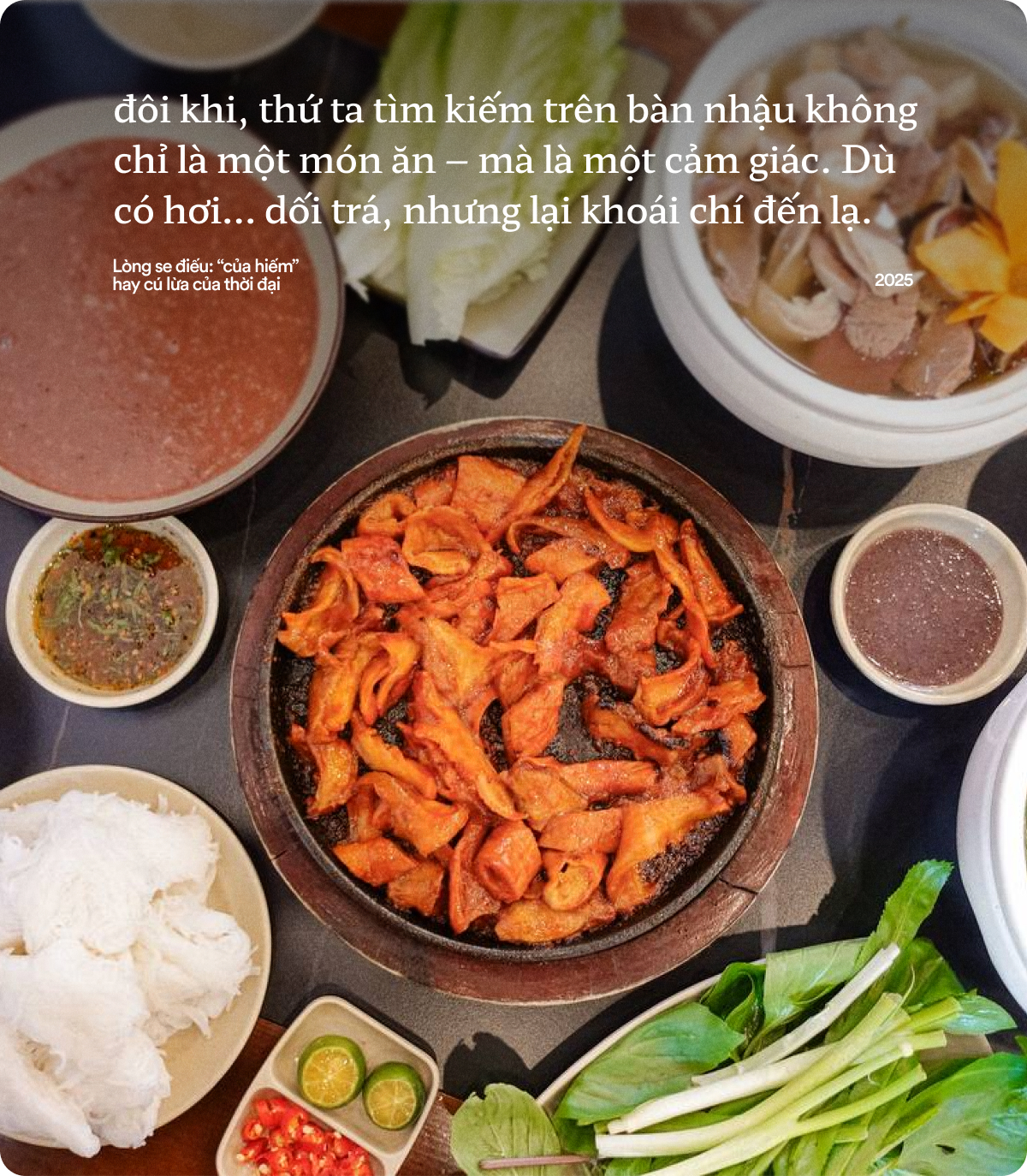
The Capital City’s Latest Find: Large Haul of Contaminated Beef, Sausages, and Fish Cakes, Ready to Hit the Market.
Nearly 11 tons of beef and beef offal, wrapped in plastic bags and stored in three cold storage warehouses, with no labels, product information, or invoices to prove their legal origin, were discovered.
The Magic of Saigon’s Retail Renaissance: Unlocking a 30-40% Sales Surge
As we approach the Lunar New Year of 2025, the Year of the Snake, businesses are gearing up with an impressive capital of over 22 trillion VND. Notably, more than 8 trillion VND of this is allocated for essential food and beverage items, ensuring a well-stocked and prosperous holiday season.

